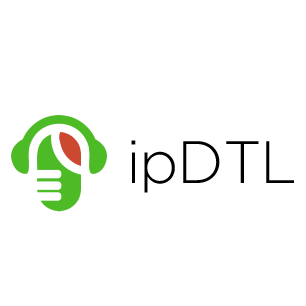Is It Smart to Go Into Debt for Your Voiceover Business?
- Anne Ganguzza
- Jul 8
- 4 min read
Updated: Sep 10
with Danielle Famble
BOSSes Anne Ganguzza and Danielle Famble tackle a crucial and often uncomfortable topic for voiceover professionals: money and debt. Prompted by Danielle's recent experience with an unexpected studio investment due to a flood, they delve into whether voice actors should go into debt to fund their careers. This episode explores personal relationships with debt, strategic financial planning, and the importance of financial literacy in building a sustainable voiceover business. They emphasize distinguishing between impulsive spending and calculated investments, advocating for a data-driven approach to financial decisions.
In this episode of the VO BOSS Podcast, Anne Ganguzza and Danielle Famble have a candid conversation about money and debt. Prompted by Danielle’s unexpected studio investment after a flood, they share personal experiences with debt and explore whether voice actors should take on debt to grow their careers. They discuss how to distinguish between impulsive spending and smart investments, and offer insights on financial planning and literacy to help voice actors build a sustainable business.
Chapter Summaries
The Unexpected Investment & The Debt Question
(01:12) Danielle shares her experience of investing in a new Studio Bricks booth after her apartment flooded, highlighting it as a purchase of necessity, not impulse. This leads Anne to pose the core question: Should voiceover talent go into debt to make crucial investments, such as a booth or entry into the industry?
Personal Philosophies on Debt & Emergency Funds
(02:54) Danielle explains her debt-averse stance due to past experiences, preferring to use an emergency fund for foreseeable expenses. She acknowledges that debt can be a useful tool when unexpected costs arise or when used strategically, emphasizing the importance of a solid financial cushion.
Strategic Debt vs. Money Blocks
(04:39) Anne discusses how personal beliefs about money and past debt experiences influence financial decisions. She highlights the misconception that online businesses like voiceover have low upfront costs. Anne then introduces the concept of strategic debt, citing her husband's use of 0% interest credit cards to generate income via high-yield savings accounts, effectively making "other people's money work for you."
Hope is Not Currency: The Role of Data in Debt
(09:37) Danielle expands on the idea of calculated risk, stressing that using debt strategically requires cold, hard facts, logic, and a clear repayment plan. She powerfully states, "Hope is not currency," warning against entering into debt with only hope as a strategy, which can lead to a cycle of revolving debt.
Financial Literacy as a Business Imperative
(11:56) Anne shares her own "epiphany" about money management after starting her business, realizing the necessity of a cold, hard look at finances for sustainability and growth. Both hosts agree that voice actors, as business owners, must deeply understand their money inflows and outflows, just as banks meticulously track their investments and risks.
The Nuances of Credit History & Education
(19:24) Anne and Danielle discuss the paradox of needing debt (like car or home loans) to build good credit, even while advocating for being debt-free. They lament the lack of financial education in early schooling, which can lead to poor financial decisions and fear around money, stressing that understanding credit is crucial for long-term financial health.
Sustaining Growth: Financial Cushion & Ongoing Investment
(23:10) Anne emphasizes that a strong financial cushion is key to continually investing in her business, taking calculated risks, and avoiding the pitfall of giving up during lean times. Danielle adds that a "day job" can serve as this vital cushion, supporting continued investment in coaching, marketing, and the overall business dream.
Top 10 Takeaways
Debt for Your Business: A Calculated Risk:
Going into debt for your voiceover business can be strategic, but it requires careful calculation, not impulse.
Build an Emergency Fund:
A robust emergency fund is crucial for unexpected expenses, like studio repairs or equipment upgrades.
Understand Your Money Psychology:
Your upbringing and past experiences with debt can significantly impact your current financial decisions.
Leverage 0% Interest Strategically:
Explore options like 0% interest credit cards to invest in high-yield savings accounts, making your money earn for you.
"Hope Is Not Currency":
Do not enter into debt with only hope as your repayment strategy; always base decisions on clear financial data.
Financial Literacy is Essential:
As a business owner, you must take a "cold, hard look" at your finances, understanding income, expenses, and investment risks.
Credit History Matters:
While striving for debt-free living, acknowledge that some debt (e.g., loans) is necessary to build a positive credit history.
Prioritize Financial Education:
Advocate for and seek out financial education early in life to avoid common pitfalls and fears around money.
Your Day Job Can Be Your Cushion:
Don't view side gigs or other income streams as a detriment; they can provide the financial stability needed to invest in your voiceover career.
Aim to Win the Money Game:
Make informed, data-driven financial choices that consistently put your business in a winning and sustainable position.
Referenced in this Episode
Direct links to things we brought up ++
Love the episode? Let our listeners hear from you!
More from Anne Ganguzza
She's a powerhouse voice talent, producer, and host. Book time with Anne to get your voiceover career in gear or focus on a specific genre. Catch her each week on VO BOSS or register for an event on VOPeeps.com >>
ROCK YOUR BUSINESS LIKE A BOSS!
New episodes every Tuesday...
Please rate & review us on Apple, Spotify, Google, and Amazon
★★★★★








































